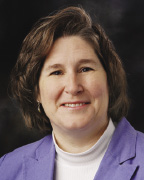The other day we all had a glimpse that the winter of 2013/2014 will be coming to an end at some point soon. With a little more light to brighten our spirits, we are starting to see some improvement in the types and numbers of projects starting up - some moth-balled for a while and some new. This means old clients are rediscovering; and new clients are just beginning to experience the 2014 state of the review process in Connecticut, New York and Massachusetts. While they slept, the cities, towns and states have added a variety of new laws and regulations that have changed since 2007.
Our clients are asking - can't we just brush off the unfinished plans on your shelves and just start where we left off? Unfortunately, no. Every town and state has added to the requirements for site plan review and approval during this economic downturn. Some changes are minor, some are inconvenience and some are significant. Here are some examples:
* Most of the people you knew are gone - whether people retired, or the budgets demanded the department reorganize- a surprising number of town planners, economic development directors, town engineers who were part of those projects aren't there anymore. They have moved on to other towns, retired, or those positions are no longer filled. The municipal staff have been cut and redefined which means that the processes have all changed, and they probably won't remember your project. Most projects, which stopped in 2007/2008, have already been archived. In addition, the major politicians - mayors, selectmen, supervisors - are different and have no experience with growth or how to handle the potential for controversy.
* The digital age - Many town now require fewer copies of plans in favor of digital copies which will be displayed during the meeting. Yes, the amount of printing is less but costs have actually gone up because more of parts of the project are being done in color. For those of us who like to do our presentations in our own way, this means bringing a computer and projector to all meetings.
* Erosion Control - Due to the provisions of the Clean Water Act, the new MS4 regulations affecting stormwater have had a profound affect on erosion control design. For many towns, this is new and requires a much better handle on how water travels during construction and how the site changes during construction in order to develop effective sequence plans. Prices for erosion control during construction have gone up as have design costs. For those of us who have been designing these types of plans for over 20 years in the New York City Watershed, it isn't really a surprise. For designers, the ongoing discussion about means and methods- how much is too much information? is always in play.
* Stormwater Regulations - In both, Connecticut and New York, the stormwater regulations have changed. In New York, if you aren't already grandfathered, all your old plans are no longer relevant. The new New York State Stormwater Manual became effective in 2010/2011 and is nothing like any of its earlier versions. If you want your design consultant to lose their mind- try to develop a site with shallow bedrock or a 60 minute perc rate. Testing prices and design fees are substantially higher and solutions tend to be inconvenient for the users, high maintenance and increased costs due to multiple systems, more pipes, increased plantings and new technologies. The days of a single detention system are long gone.
In Connecticut, the CTDEEP General Permit for Stormwater has also changed. All projects with more than ½ acre disturbance now requires a Stormwater Pollution Prevention Plan and Erosion Control Plan, review and submittal. All projects with more than 5 acres disturbance now requires a CTDEEP General Permit for Stormwater Discharge during Construction even after local review.
In this new season, landscape architects are in an excellent position to assist projects of all sizes through the design and review process. We are flexible thinkers, adept at thinking of solutions and responding to comments, trained to prepare presentations and good at summarizing the past in a factual but clear manner. As a last thought, I would just like to ask those clients out there to remember that your local consultants are more likely to do a good job because they will be back to that town either tomorrow or next month. Out of state consultants are not aware of local soils, regulations and politics. Any one of which will cost you time and/or money that you might think you are saving.
Enjoy the spring!
Terri-Ann Hahn, ASLA, CPESC, CPSWQ, LEED AP is a principal of LADA, P.C. - Land Planners, Simsbury, Conn.
Tags:
With winter coming to an end, we are starting to see some improvement in projects starting up
March 20, 2014 - Connecticut









